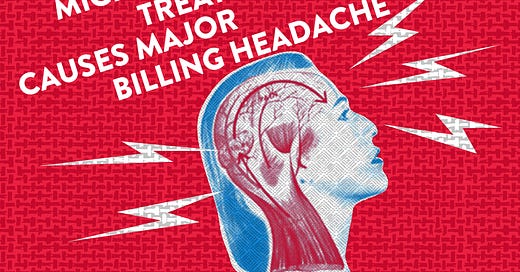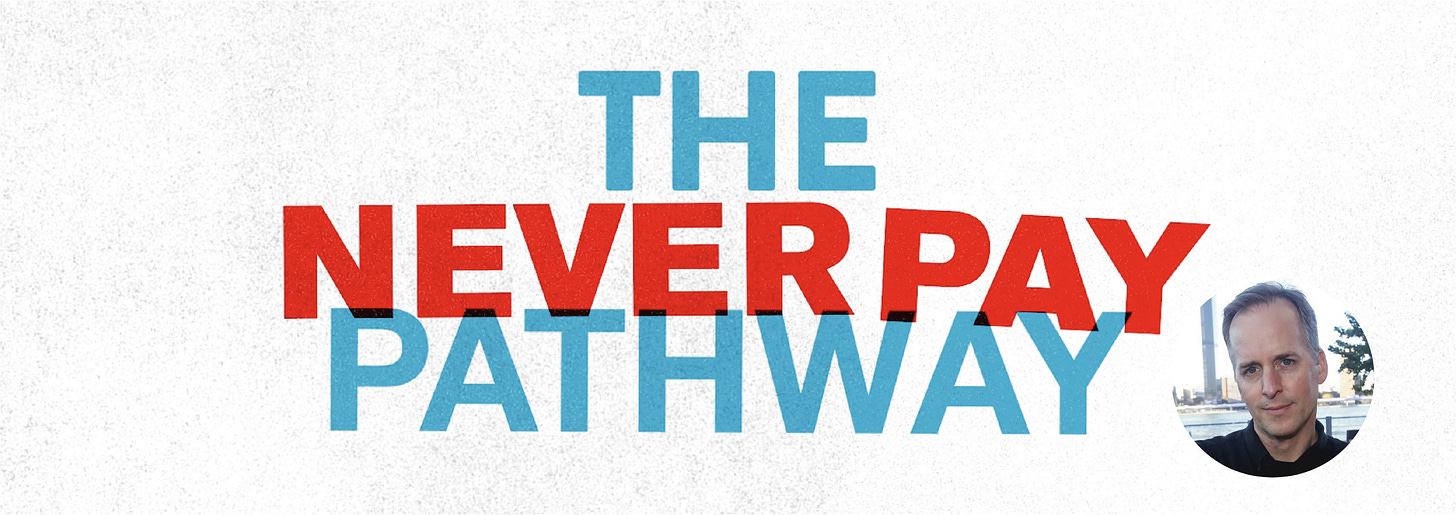Migraine Treatment Causes Major Billing Headache
Patience and persistence were Holly Granofsky’s cure for the $4,153 problem.
I called my book “Never Pay the First Bill,” because you shouldn’t pay your medical bill until you make sure it’s not inaccurate or overpriced.
Holly Granofsky’s bill was both inaccurate and overpriced.
Holly had gone through the process of paying for Botox injections for her migraines for 15 years when she lived in New York. She had to pay separately for the medication and the treatment, but she had it figured out. She would pay up front for the Botox, and then get a portion of the payment reimbursed by the drug manufacturer. Then her doctor would get paid about $250 for the injections in her scalp and forehead.
Then she switched doctors.
The 55-year-old, who works in health care sales, moved to Florida. She went for the same Botox treatment at South Florida Neurology Associates, in Boca Raton. She paid $1,800 up front for the Botox, which wasn’t unexpected, and got $1,000 reimbursed from the drug company.
She expected that the doctor would get paid around $250. But her insurance company denied payment, and the doctor stuck her with a bill for $4,153!
Holly couldn’t figure out how the price got so high. The doctor’s itemized bill said she owed $3,672 for the Botox. But that was an obvious error. She had already paid for the medication.
The bill showed a $531 charge for the injection. More than twice the New York price.
The bill was indeed inaccurate and overpriced.
Holly and the doctor appealed the insurance company denial, but didn’t get anywhere. Holly called the insurer but kept getting excuses until it became a dead end.
Meanwhile, the doctor’s office kept sending her the inaccurate and overpriced bill.
Holly and the billing department started a dance. They’d send a bill, and she’d call and say she couldn’t pay it. “I’m asking you to waive this $4,200.”
Holly used patience and persistence as her strategies to get the bill corrected. When billing disputes drag out, it gives an advantage to the patient. The bogus biller will begin to see that they need to be reasonable and give the patient a fair deal, or risk getting nothing.
Holly did her best to avoid the billing department and speak directly to the doctor. She got him on the phone and reminded him that she’d already paid for the Botox and offered to pay him the $196 her doctor got in New York. He promised to look into it.
Weeks would pass and she’d get another bill. She’d call again. “You realize you’re charging me $4,200 for 10 minutes in your office,” she told the doctor on one call.
The doctor acknowledged that the price sounded high and said he might write it off.
The dance went on for almost two years. Thankfully, the doctor’s office didn’t send the bill to collections.
Finally, the doctor told Holly he would write it off. In June 2023 she received a letter saying she owed nothing.
“I think they were finally tired of me,” she said.
Holly waived her privacy rights so the practice administrator could speak with me. The administrator said she hadn’t worked for the clinic in September 2021, when Holly had her appointment. But she looked up her records and confirmed the amount of the bill and some other key details. She said when the insurance company denied payment it made sense to bill Holly. Holly had signed a document that said she agreed to the charges at the time she received treatment. “If you were a medical facility and you rendered services, you would bill the patient,” the administrator said.
In the end, the clinic ended up with a loss, the administrator said.
Holly said she runs into people all the time who have medical billing nightmares. Last week she spoke to a dental assistant who said she was getting overcharged for her mammograms. People need to learn to push back, Holly said.
Action steps
Holly recommended that other patients stand firm when they’re being sent a bogus medical bill. She laid out the action steps that she took, that others can also deploy.
Wait it out. Don’t pay the first bill. Stretching the timeline gives the patient negotiating strength. The billing department will become concerned about collecting anything, which makes them more willing to accept a fair price.
Be persistent. Holly called every time she got a bill and had a conversation about getting it corrected.
Keep good records. Holly took notes about each conversation and kept them in a file.
Show them the evidence. She showed them the EOB from her previous provider, showing how much she had paid. She could show that she had already paid for the Botox, so it shouldn’t be billed again.
Meme of the week
I’m having so much fun making health care memes. Satire is a humorous, entertaining way to speak truth to power. “Satire is moral outrage translated into comic art,” the American novelist Philip Roth said.
For those who are not insiders, “BUCAs” is the industry lingo for the big insurance companies — an acronym based on their names: Blue Cross, United, Cigna, Aetna. And the cats — well, I love cats and think this video is hilarious. So there you go!
American health care needs to be satirized. I’m doing my part. Follow me on LinkedIn to get a regular dose of my health care memes.
The reviews are in. People love The Never Pay Pathway
The Never Pay Pathway is my health literacy video curriculum that’s based on my book, Never Pay the First Bill.
The 16 short and engaging videos are designed to roll out as part of an employer’s health benefits plan. They create empowered health care consumers — something we need to bring about true reform in our health care system.
I include an assessment, so people who complete the curriculum can provide a testimonial. It’s encouraging to me to hear what people have to say about the videos. I love this one:
“The Never Pay Pathway helped me to be more mindful of my medical bills and to be my own advocate when disputing charges that are false or overpriced.”
- Valinda
I love it! Way to go, Valinda!
I’m looking for bold benefits advisors and employers who want to empower their employees with The Never Pay Pathway. Let’s partner up and get these people equipped! Email me at neverpay@marshallallen.com, and let’s make it happen!







Thank you so much for your posts and hard work!
Check out today's article in the NY Times:
https://www.nytimes.com/2024/04/07/us/health-insurance-medical-bills.html?smid=nytcore-ios-share&referringSource=articleShare.
Too bad they didn't contact Marshall for this article!